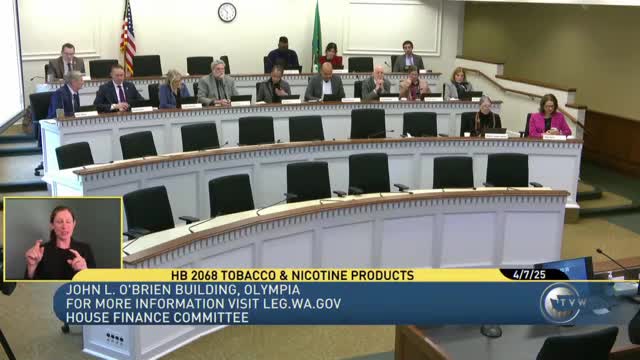Committee hears proposal for 0.4% B&O surcharge on social media to fund youth behavioral health
Get AI-powered insights, summaries, and transcripts
Subscribe
Summary
House Finance heard public comment on House Bill 2038, which would impose a 0.4% additional B&O tax on social media platforms and deposit proceeds into a youth behavioral health account to fund prevention, telebehavioral health pilots and an interagency youth behavioral health coordinator.
Committee staff and the bill’s sponsor outlined House Bill 2038 at a House Finance Committee public hearing, emphasizing an additional business and occupation (B&O) tax on social media platforms and a new youth behavioral health account to fund prevention, telebehavioral health pilots in schools and state coordination of prenatal through age 25 behavioral health work.
Staff briefing: Christina King, committee staff, explained that the bill would add a 0.4 percent surcharge to the B&O tax on businesses operating social media platforms beginning January 1, 2026. The surcharge would apply to gross income taxable under the B&O service and other activities classification and would be in addition to existing B&O taxes. Nonprofit organizations exempt from federal income tax would be excluded.
Sponsor Rep. Lisa Callan described the measure as an investment in prevention and early intervention tied to the Washington Thriving prenatal‑through‑25 behavioral health strategic planning effort. Callan cited state youth survey data during her remarks, saying, in part, that “56 percent of those that responded to the survey of eighth graders report using social media like Instagram, TikTok, Snapchat, and others several times a day.” She framed the proposed surcharge as a way to generate sustainable funding for programs identified by existing planning efforts.
Revenue and expenditures: Staff cited Department of Revenue estimates in a fiscal note distributed at the hearing: $2.7 million in fiscal 2026 (five months of collections), $7 million in fiscal 2027 (first full year) and a 2025–27 biennial total of $9.7 million; a 2027–29 biennium estimate of $16 million. The governor’s office told staff it would spend roughly $4.97 million of the first biennium’s revenue on staffing and program support, with additional smaller DOR implementation costs for system changes and rulemaking.
Supporters argued the bill would provide predictable, dedicated funding for youth behavioral health and prevention. Dr. Stephan Blanford of Children’s Alliance said, “Social media use amongst teens has worsened this crisis,” and multiple youth, parent and provider speakers urged passage to expand access to care. Chetan Soney of the Washington Youth Alliance said the revenue proposal would support students who cannot get timely care and summarized an individual case by saying, “This bill, if passed, would save lives.” Several youth testified about difficulties accessing school‑based therapists and long waitlists.
Opponents raised legal and policy objections. TechNet and NetChoice argued the tax may violate the Internet Tax Freedom Act (ITFA) and said the bill singled out social media while exempting other online services; TechNet called the bill “discriminatory” in that it would single out social media platforms. Business groups including Association of Washington Business and the Vapor Technology Association urged opposing the bill, warning that platforms could pass costs to advertisers or small businesses and that policy solutions should come from the general fund. OPR staff indicated they would follow up on legal preemption questions for the committee.
No committee vote was taken. The public hearing was closed and staff will provide additional legal and fiscal follow‑up material to the committee record.
